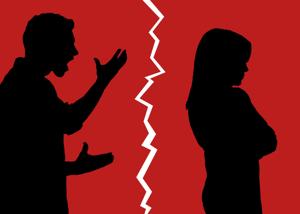Sexual abuse in relationships is not okay
Something
inspiring from 2017 was the “Me Too” movement. Sexual assault and
harassment are being addressed en masse. Victims are coming forward to
share their stories while inviting and encouraging others to do the
same. This has been a time of great acceptance and support, and as more
and more people share their stories the need for action against this
abuse is slowly escalating. Corporations are doing their best to cut
ties with accused rapists like Harvey Weinstein, which is a big step in
the right direction.
Now
more than ever it is time to address all kinds of abuse. One type of
abuse that is often underreported is sexual abuse within relationships.
According to loveisrespect.org,
“nearly 1.5 million high school students nationwide experience physical
abuse from a dating partner in a single year. One in three adolescents
in the U.S. is a victim of physical, sexual, emotional, or verbal abuse
from a dating partner, a figure that far exceeds rates of other types of
youth violence. One in 10 high school students has been purposefully
hit, slapped, or physically hurt by a boyfriend or girlfriend.”
The most surprising thing I took
away from those statistics was how common violence is in relationships
among young people. To get a better understanding about the consequences
of this type of violence, I talked to Emma, who was the victim of abuse
while in a relationship.
“My ex thought that because we
were dating it was okay to do what he wanted,” Emma said. “For a while I
thought it was what was expected. A good friend of his brought to my
attention that what he was doing was wrong and I struggled to get out of
the relationship for 2 years. Finally I got the help I needed and even
though it still affects my daily life, at least I'm safe and getting
help.”
The abuse she experienced made it
hard for her to trust people and she feels as though she is no longer
able to live a normal life like other people her age. According to Love
is Respect, there are many long-lasting effects of adolescent
relationship violence. Half of the youth affected attempt suicide, and
there is a higher risk for substance abuse, eating disorders, risky
sexual behavior and more domestic violence in people who experience this
type of abuse.
“Just because you're dating
someone doesn't mean they can do whatever they want and it certainly
doesn't make it okay for them to ignore you when you say you're
uncomfortable,” Emma said. “[In regards to sexual violence] If someone
doesn't say yes or they aren't in a sober mind set, it's important to
stop because that’s automatically a no. If your partner doesn't want to,
or can't consent, it is not okay and is considered sexual assault.”
If you are not able to talk to
someone you trust in the aftermath of relationship violence, there are
two hotlines that you can reach out to. The domestic abuse hotline:
1-800-799-7233, and the sexual assault hotline: 1-800-656-4673. If you
are in immediate danger, call 911.

Comments
Post a Comment